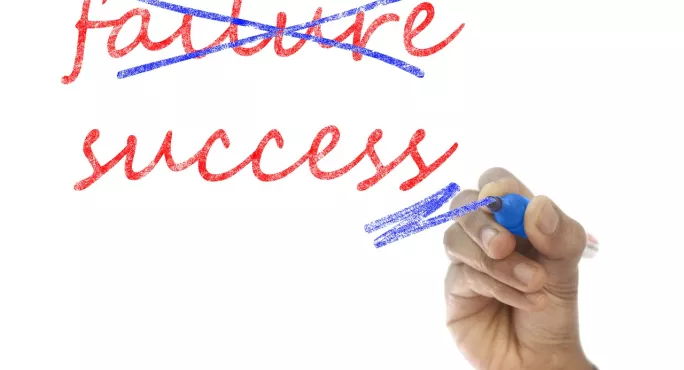Failure, it would appear, is having a moment. You could put failure quotes into any search engine and enjoy a veritable rabbit hole of statements that tell us why failure is so great.
Why might failure be positive? Wait, perhaps that was premature. If you had a group of students who all failed a test, would you congratulate them and say this was a moment for growth?
No. You would be concerned about why they had not been able to meet the required standard. This would then lead to changes in approach from you and, hopefully, from your students.
Read more: Failure is not an option (but it should be)
Opinion: How to create a mistake-friendly classroom
Background: The importance of finding the success in failure
Learning through reflection
It is not the failure that is positive but what can be learnt from it and how, through reflection, approaches can be changed as a result; that changes made due to failure can ultimately leads to better success.
However, if the failure feels to great to overcome then students may decide to give up. It can take maturity, often born out of prior experience, before failure can be seen as an opportunity to assess, understand and redirect.
Teachers can find themselves in the unique position of helping students, particularly those starting out within the high-stakes world of SATs, GCSEs and A Levels, to understand this. Within art we are lucky enough to have the idea of experimentation and refinement built into the process of creating and within the marking criteria.
This is also clearly evident within science exploration or the mathematical idea of experimental probabilities, but in all cases teachers could use these examples to highlight the close relationship that experimentation and failure has. The answer in each is found through a series of eliminating incorrect options, or in the words of Edison “I haven’t failed. I have just found 10, 000 ways that won’t work.”
'Education is part of a child's wider development'
If a student’s future success is to be calculated as a probability then one of the key pieces of information you want is how successful they have been in the past. Or put more simply success leads to success.
Perhaps our notion of success is the problem. Education should not be about stepping stones from one level to the next, ticking them off in an ever higher levels of increments, until one day the student leaves the educational nest and fly’s out into the world, potentially qualified to the hilt but with no idea of much else.
Education should be seen as part of the wider development of the child, with their personal and social development nurtured, not though the understanding of subjects alone but through the school show, the sports club, trips, student council or any number of activities we provide. Whatever the case, and however much of the above you agree with, or not, failure will be part of our lives as educators and our students lives, both as learners and people.
To know it will be present, to treat it less like a foe, a rude interruption or an outright insult, but instead an expectation, and one that we can manage, and maybe even achieve greater outcomes as a result of, is part of everyone’s learning process.
Hannah Day is head of visual arts, media and film at Ludlow College


